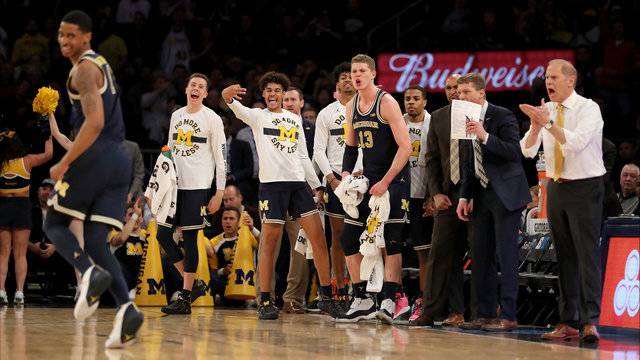 |
| "Don't look back, you can never look back." |
The most fascinating thing about getting close to the goal while failing to achieve it is the feeling at the end of it. Sports provides so many winners and losers, as is the nature of competition, but of the 68 teams in the NCAA basketball tournament, only one ends their season with a victory. Even if a team that has won five games before succumbing, once more outperforming its seed, it still ends its season on a loss. After all, loss is the business of determining a champion, and perhaps it is much more meaningful to dissect what went wrong rather than what went right. We have statistical analysis to tell us what should happen, given what has happened before, but as any good financial services commercial is required to advise you, past performance is not a guarantee of future results.
If sports is just a weighted random number generator around which we construct narratives, it is probably still OK because the tales are fascinating if some effort is put into the construction. Triteness, that fast trope, is easy, quick, and the friend of someone on deadline. It requires no real depths to be plumbed, it uses the familiar horizons of the well-worn path to allow its reader a quick understanding of what happened. If there really are just seven basic plots in the world (overcoming the monster; rags to riches; the quest; voyage and return; comedy; tragedy; rebirth); Michigan's basketball and hockey seasons actually featured snippets from all of them to create a sophisticated narrative that I am not strong enough, as a writer, to fully elucidate for the reader. We create our own meanings, we reflect our own biases in what this meant, trying to understand the seasons as a means of understanding ourselves better. We look into a maize and blue tinted mirror and hope that we know ourselves a little bit more for the first time.
To get close enough to see the mountain top but fail to complete the ascent is frustrating in metaphor and potentially tragic in reality. So much of literature tells us that it is the journey that matters, not the destination (Big Ten Network has made a narrative flourish on that very premise). But it is a matter of perspective. If one had fully prepared to make the ascent, had the best guides, the best hear, the best training, it would be effortless to feel the depth of disappointment and realize the abjectness of the failure. It is another thing to be climbing and climbing and climbing and realize too late, like a mountaineering Wile E. Coyote, that you are at a more considerable elevation than you ever thought possible, and truth be told, is probably not healthy for you. That moment where it all evaporates is painful, but the journey, every handhold, every crevasse, becomes etched into your memory because you don't know if you'll ever be back up this mountain, and even if you are, it won't be with this team of climbers.
We wanted more, so did they. We didn't get more for reasons of which they are all too fully aware. We also got more out of the climb than we would have allowed ourselves in the first place. Pride and disappointment can safely coexist, if for no other reason than both have stakes attached. Just as we told ourselves that we weren't sure what Poole's shot meant at the moment because we had to see what played out after that, we aren't sure what this season means without knowing if it was a prelude, or a missed opportunity, or both.
But since January, man, it was fun while it lasted.

No comments:
Post a Comment